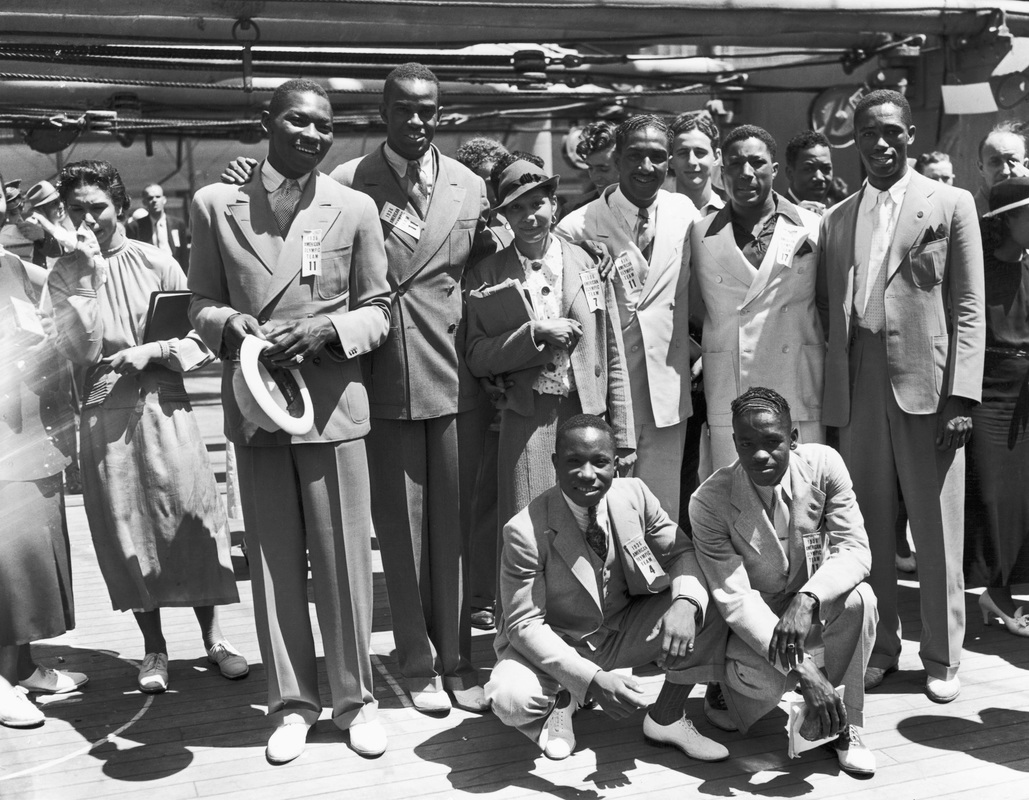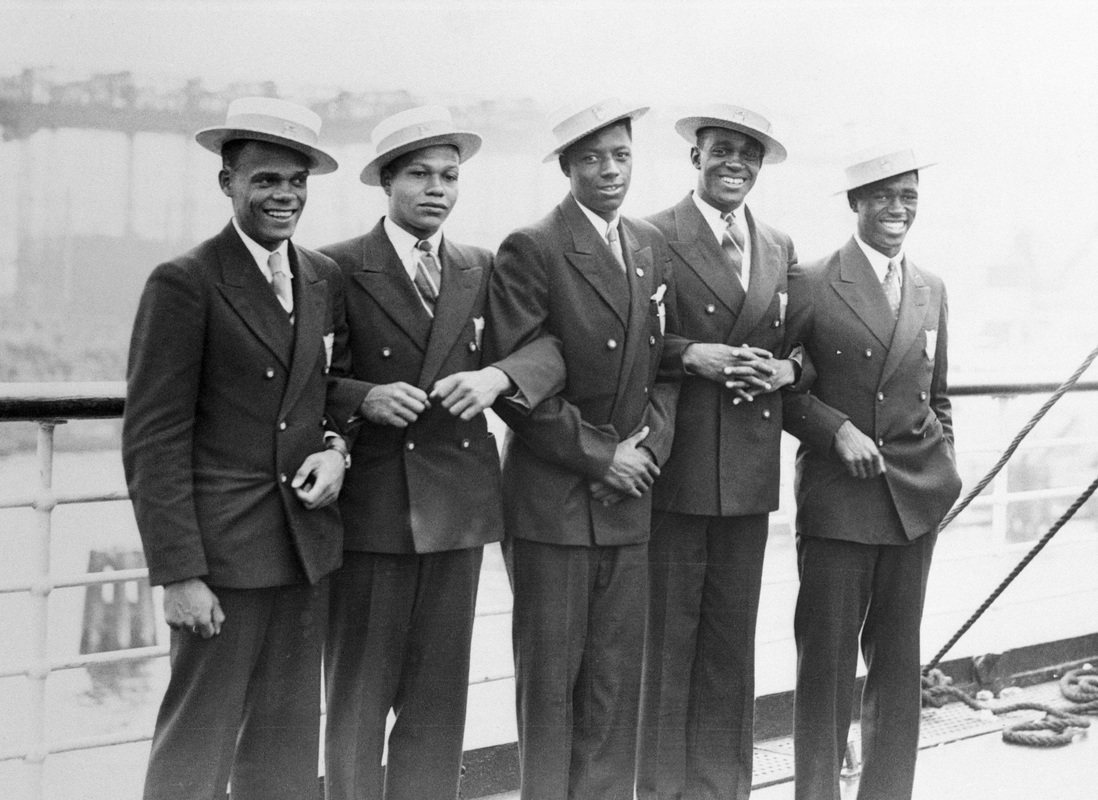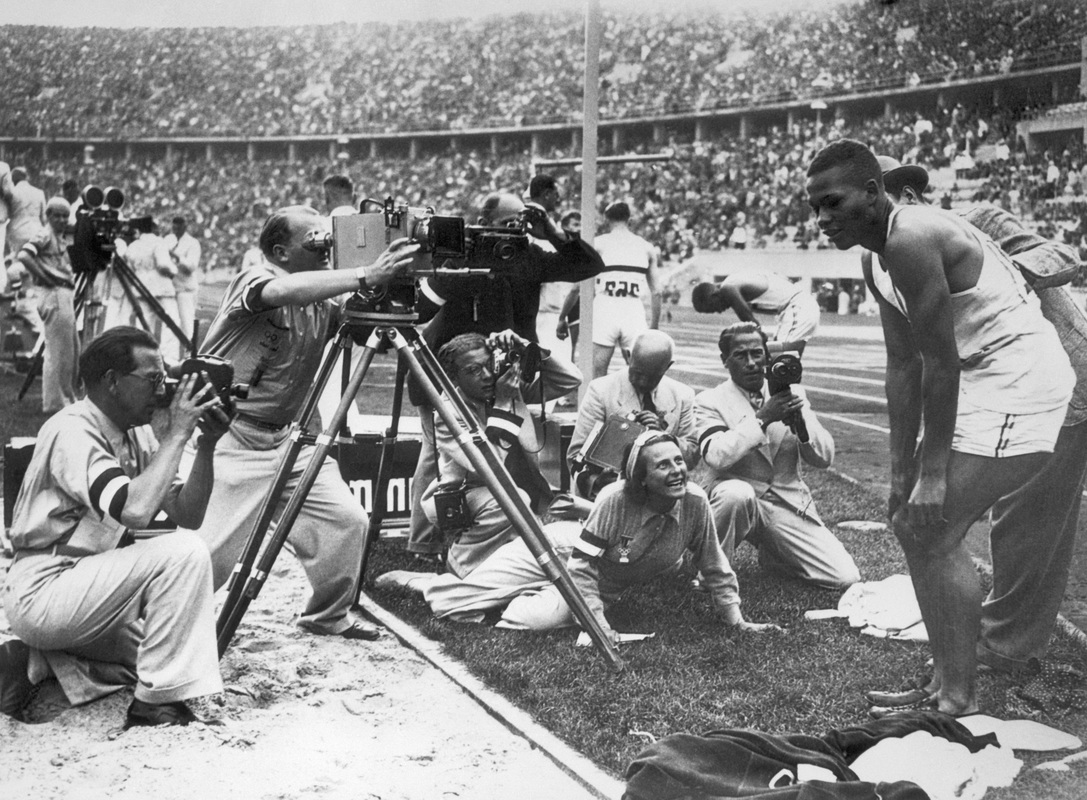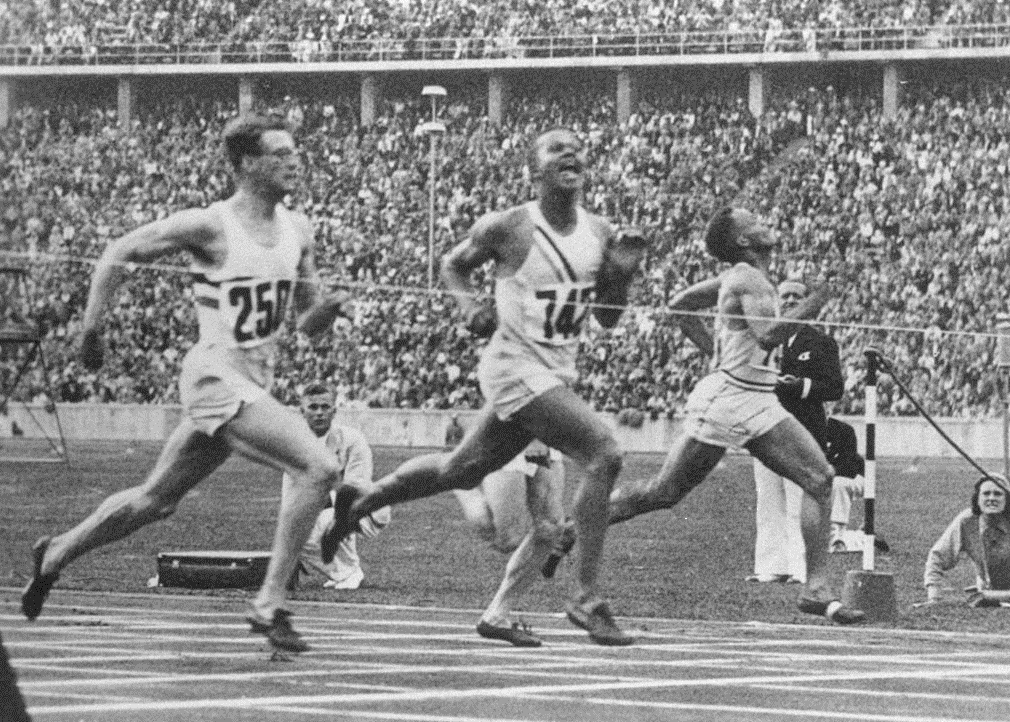New documentary reveals what really happened at '36 Olympics: more than just Jesse vs. Hitler6/29/2016
Olympic Pride, American Prejudice uncovers lost story of 18 African-Americans who dashed Hitler's Olympische Spiele, and took on Jim Crow
Update: Olympic Pride, American Prejudice gets theatrical release [see below]
The Rio Olympics will no doubt produce its share of excitement and thrills, but for sheer historical importance it can never match the Games that took place 80 years ago.
The 1936 Olympics in Berlin were designed to burnish Hitler's image and, more importantly, to prove his theory of Aryan racial superiority. That the American sprinter and long jumper Jesse Owens confounded those plans is well known; what has long been forgotten is the equally critical role that 17 other African-American athletes played in defying the Führer and shattering his Aryan supremacist myth. These are athletes who did something really important at a seminal point in human history.
That neglected story is uncovered in the new documentary Olympic Pride, American Prejudice, directed by Deborah Riley Draper and narrated by Blair Underwood. The film premiered at the recent Los Angeles Film Festival; it opens August 5 at Cinema Village in New York and the Laemmle Monica Film Center in Los Angeles -- the very day the Olympic Games kick off in Rio.
SHARE THIS:
The film takes viewers back to the mid-1930s as Avery Brundage, head of American Olympic team, assembled his squad. The team almost didn't get a chance to compete -- Brundage first had to counter an intense campaign to boycott the Games over Hitler's anti-Semitic policies (that he succeeded is still a subject of some controversy).
The American team that traveled to Berlin on the SS Manhattan included 16 African-American men and two African-American women, as well as a few Jewish athletes. There is fascinating archival footage of competitors trying to maintain their conditioning aboard the ocean liner during the long passage to Europe -- an unthinkable scenario today. 
African-American athletes on their way to compete in the Berlin Olympics, 1936. L-R, standing: Dave Albritton (High Jump Silver Medalist; Cornelius Johnson (High Jump Gold Medalist); Tidye Pickett (80m Hurdles); Ralph Metcalfe (100m Silver Medalist, 4x100m Gold Medalist); Jimmy Clark (Boxing); Mack Robinson (200m Silver Medalist). Background, between Clark & Robinson: Willis Johnson (Boxing). Kneeling: John Terry (Weightlifting); John Brooks (Broad Jump). Photo credit: Olympic Pride, American Prejudice LLC
Among the members of the squad was Mack Robinson, older brother of Jackie Robinson, who would go on to break the color barrier in Major League Baseball. On the boat to Berlin there was no way of knowing that Owens would emerge as the star of the Games with his four Gold Medals, an achievement that would wind up overshadowing the accomplishments of his African-American teammates [listen to the podcast to hear director Riley Draper discuss how ignoring the full scope of African-American athletic achievement helped serve a racist mindset back home],
Their story is important to be told and retold.
In Berlin the African-American athletes enjoyed a level of freedom and respect that was denied them systematically in the U.S. But they could not escape injustice altogether -- embodied at least partly by Brundage, who made final decisions on who could compete on a given day. The film suggests he pulled Louise Stokes -- one of the two African-American women on the team -- from a relay event, depriving her of a shot at Olympic glory. He similarly denied competitive slots to Jewish athletes, to appease his Nazi hosts.

African-American Olympians on board the SS Manhattan en route to Berlin. L-R: James LuValle, 400m Bronze Medalist; Archie Williams, 400m Gold Medalist; John Woodruff, 800m Gold Medalist; Cornelius Johnson, High Jump Gold Medalist; Mack Robinson, 200m Silver Medalist. Photo credit: Olympic Pride, American Prejudice LLC
"These are athletes who did something incredibly important at a seminal point in history," notes professor Daniel Durbin in the film.
"That in and of itself is moving -- to see what they fought, how they fought," Underwood told Nonfictionfilm.com, referring not only to the Nazi ideology they went up against, but the Jim Crow brutality and institutionalized racism that was the reality in their own country. Many went on to academic and professional success, including James LuValle, who earned his Ph.D. in chemistry and mathematics, studying under Nobel Laureate Linus Pauling at Caltech. "These are some significant student athletes, so they really dispelled this myth... of inferiority," Riley Draper told NFF. "It's hard to kind of hold that guy up and say he's not good enough if he's working on his Ph.D. at Caltech."
LuValle's recorded memories are part of the film, along with new interviews with children of some of the athletes. Olympic Pride, American Prejudice ensures that the achievement of the 18 African-American teammates in Berlin will never more be forgotten.
|
AuthorMatthew Carey is a documentary filmmaker and journalist. His work has appeared on Deadline.com, CNN, CNN.com, TheWrap.com, NBCNews.com and in Documentary magazine. |
- Home
- News
- Videos
-
Galleries
- 2019 Tribeca Film Festival
- Full Frame Documentary Film Festival
- 2019 SXSW Film Festival
- SXSW 2018 Gallery
- 2019 Sundance Film Festival
- Outfest 2018 Photo Gallery
- Outfest 2017
- Sundance 2018 Photos
- 2017 LA Film Festival
- 2017 Cannes Film Festival
- Tribeca Film Festival 2017
- SXSW 2017 Gallery
- 2017 Berlin Film Festival
- Sundance 2017 Gallery
- 2016 Los Angeles Film Festival
- Cannes Film Festival 2016
- SXSW 2016 Gallery
- Berlinale 2016 Gallery
- Sundance 2016 Gallery
- Filmmaker Gallery
- About
- Contact
Proudly powered by Weebly
- Home
- News
- Videos
-
Galleries
- 2019 Tribeca Film Festival
- Full Frame Documentary Film Festival
- 2019 SXSW Film Festival
- SXSW 2018 Gallery
- 2019 Sundance Film Festival
- Outfest 2018 Photo Gallery
- Outfest 2017
- Sundance 2018 Photos
- 2017 LA Film Festival
- 2017 Cannes Film Festival
- Tribeca Film Festival 2017
- SXSW 2017 Gallery
- 2017 Berlin Film Festival
- Sundance 2017 Gallery
- 2016 Los Angeles Film Festival
- Cannes Film Festival 2016
- SXSW 2016 Gallery
- Berlinale 2016 Gallery
- Sundance 2016 Gallery
- Filmmaker Gallery
- About
- Contact



 RSS Feed
RSS Feed